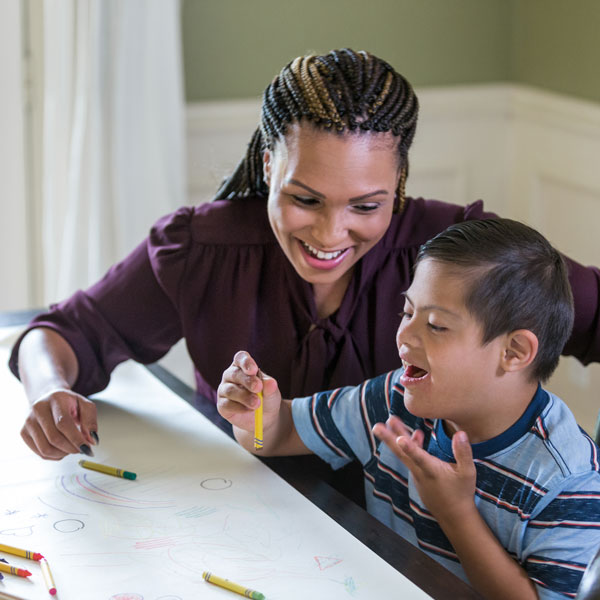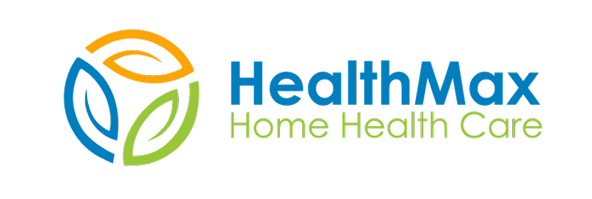Personal Care Assistance (PCA)
Personal Care Assistance (PCA) Services
HealthMax Home Health Care provides assistance and support for persons with disabilities, living independently in the community. This includes the elderly and others with special health care needs. PCA services are provided in the recipient’s home or in the community when normal life activities take him or her outside the home.

Eligible Services for Medical Assistance Payment
Four categories of personal care assistance (PCA) services are eligible for payment from Medical Assistance:
- Activities of daily living (ADLs)
- Instrumental activities of daily living (IADLs)
- Observation and redirection of behaviors
- Health-related procedures and tasks

PCA Service Criteria
A personal care assistant (PCA) may assist in these four categories of PCA services if the following criteria are met:
- The PCA care plan describes the recipient’s needed assistance
- Training of the PCA worker is specific to the person’s needs and occurs in the first 14 days of PCA service for the person (unless the person has PCA Choice)
- Documentation of the individualized training regarding the needs of the recipient is in the agency file
- The PCA worker documents services rendered on the timesheet and/or in another agency form
PCA services may not meet all of the needs of the person. Referrals to other resources and services may be required. PCA services require prior authorization for payment.
Covered Services
A PCA worker may assist the person with the following ADLs:
Including the application of clothing and special appliances or wraps.
Including basic hair care, oral care, shaving, basic nail care, applying cosmetics and deodorant, care of eyeglasses, and hearing aids.
Including basic personal hygiene and skincare.
Including completing the process of eating, including hand washing and application of orthotics required for eating, transfers, and feeding.
Including assistance to transfer the person from one seating or reclining area to another.
Including assistance with ambulation, including use of a wheelchair; not including providing transportation.
Including assistance with positioning or turning a person for necessary care and comfort.
Including helping persons with bowel or bladder elimination and care. This includes transfers, mobility, positioning, feminine hygiene, use of toileting equipment or supplies, cleansing the perineal area, an inspection of the skin, and adjusting clothing.
Instrumental Activities of Daily Living (IADLs)
A PCA worker may assist an adult with the following:
- Accompany to medical appointments
- Accompany to participate in the community
- Assist with paying bills
- Communicate by telephone and other media
- Complete household tasks integral to the PCA services, such as: plan and prepare meals, shop for food, clothing and other essential items
A PCA worker may assist a child with IADLs when:
- Immediate attention is needed for health and hygiene reasons integral to the personal care services and;
- Assessor has indicated this need on the service plan

Observation and Redirection of Behaviors
A PCA worker may observe and provide redirection to the recipient for episodes of behavior needing redirection as identified in the care plan.
Health-Related Procedures and Tasks
Under state law, a licensed health care professional may delegate health-related procedures and tasks to a personal care assistant when the following conditions are met:
- Procedures and tasks meet the definition of health-related procedures and tasks
- A qualified professional trains and supervises the PCA worker
- PCA worker demonstrates competency to complete the procedures and tasks safely
- The qualified professional has documented the delegation of health-related procedures and tasks in the recipient’s personal care assistance care plan, and the recipient’s and PCA worker’s files
Health-related procedures and tasks may include:
- Assistance with self-administered medications
- Interventions for seizure disorders, including monitoring and observation
- Range of motion and passive exercise to maintain a person’s strength and muscle functioning
- Tracheostomy suctioning and services to recipients on ventilator support
- Other activities considered within the scope of PCA service and meeting the definition of health-related procedures and tasks
Non-Covered Services
The following are non-covered PCA services:
- Application of restraints or implementation of procedures under Minn. Stat. §245.825
- Home maintenance or chore services
- Homemaker services not an integral part of assessed need for PCA services
- Instrumental activities of daily living for children under the age of 18, except those noted under covered services
- Injections of fluid and medications into veins, muscles or skin
- Services that are the responsibility of a residential or program license-holder under the terms of a service agreement and administrative rules
- Services solely as a child-care or babysitting service
- Services to meet staffing or licensing requirements for a residential or child-care setting
- PCA services provided by a non-relative who owns or otherwise controls the living arrangement
- PCA services provided without authorization
- Services provided by a recipient’s spouse, parent of a recipient under the age of 18, paid legal guardian, licensed foster provider, except as allowed under Minn. Stat. §256B.0652, subd. 10, or responsible party
- Any administration of sterile procedures
Transportation and Errands
HealthMax does not authorize PCA’s to transport clients. PCA’s are likewise not authorized to have possession of the client’s belongings, money, or account information and therefore cannot run errands for said client. HealthMax does allow PCA’s to accompany clients to appointments, run errands, or do laundry.
